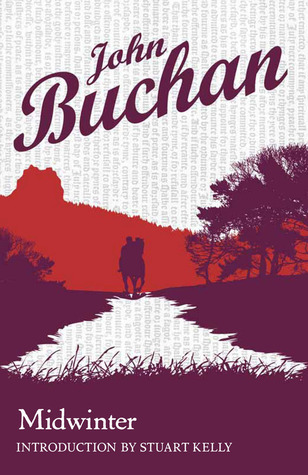My last book of my mini-look at books with Jacobites in it is Midwinter by John Buchan, a book I was particularly interested to read as a young(ish) Samuel Johnson turns up as one of the key supporting characters.
Initially presented as some lost Boswell papers, Midwinter is the tale of Jacobite agent, Alastair Maclean and his sojourn into England during the ’45 to gain support from the English. There he gets embroiled in the search for a run-away daughter and discovers traitors in the Jacobite ranks whose interference may damn the whole endeavour.
The pretence at being Boswell’s papers only really exists in the first and last chapters and the novel is told very much as a twentieth century novel, with no attempt to make it sound like a report or even an artefact from its time. This is fine as the novel is essentially a spy behind enemy lines story and extra layers of artifice would have sapped the tension. Impressively, the book does build up considerable tension, despite the fact that it’s a forgone conclusion that Maclean will fail in his mission. This is partly because the audience becomes invested in the fate of Maclean and partly because the characters themselves have no knowledge of how history will pan out and their urgency is infectious.
Maclean is aided by a character called Midwinter and his Naked Men. He is the king of the secret Old England, a shadowland of charcoal burners, woodsman, servants and other forgotten people. At times he seems Puckish, at others a bit like Merlin. He reminded me of Cock Lorrel, the mythical king of the beggars that Chaunting Nick Swain enlisted to aid the Jacobites in The Virtue of this Jest - one of my favourite books. He’s a manifestation of the (dubious) unbroken pagan tradition in England.
The book’s introduction made a lot of the fact that in this book, the Highlander Maclean goes into England and finds it a strange, wild and barbaric place where people speak in incomprehensible dialect. Usually, it’s the tips of Scotland portrayed as savage and unchristian, but here it’s the snug middle of the country. This alien England shares the same land as the smug, comfortable England which Maclean is trying to prod out of inactivity.
The spy plot of double-crossings, betrayal, capture - and nearly being fed into a huge hole in the ground by a crazy man is a very interesting one and Maclean’s story, of a dedicated soldier and idealist who loses it all, was moving. I was, however, only paying attention to one character.
I was led to believe this was a book that portrays Samuel Johnson as heading up north to join the Jacobite Rebellion. Although he did have some sympathy with the Stuart cause, and was decidedly anti-whig, it would have been very against character to have him march up to join an armed uprising - his main political desire was stability, he’d never have joined in an action to upset it. Johnson in this book has left London (and Tetty, who gets a namecheck) and become a private tutor. His charge, who nicknames him ‘Puffin’, runs away with an a man who is unsuitable for her and he sets out to get her back. He is fiercely loyal to the woman (who everyone seems to fall in love with, for no discernible reason) and her shacking up with a Jacobite supporter is what brings him into Maclean’s company.
The notion of a pre-dictionary, pre-fame Johnson is a wonderful one. We look at Johnson now as this established and semi-revered figure, a source of wisdom and wit. It’s easy to overlook what an unprepossessing figure he cut, and how at odds his first impressions were. Hogarth thought Johnson was ‘an idiot’ when he first saw Johnson. Much is made of his contradictory ‘shabbiness and self possession’, his lanky ungainliness with a surprising athleticism. Johnson in this can hold his own in a fight, can offer wise advice, will cling on tenaciously to help a friend in need and is also uncouth, awkward and something of a joke. The fact that he’s always twitching, tapping his fingers or ‘rolling his head like a marionette’ is never ignored, but nor is his ultimate decency and intelligence. It’s a really nice portrayal (though the quotes from future Johnson lines can be heavy-handed).
The front of the book boasts Midwinter is one of the finest historical novels ever written. It’s not quite that but it is a thrilling spy story set in a very realised historical setting with a cameo from one of my favourite figures from history - so not too shabby.



No comments:
Post a Comment